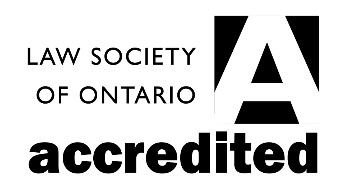- Law Firms
- Corporate
-
Academic
- Law Faculty: Teachers & Librarians
- Lexis+ AI™ For Law Schools
- Register for Online Access
- Academic Books & Inspection Copies
- Government
-
Solutions
- Research & Analytics
- Lexis+ AI™
- Protégé™
- Lexis+™ Canada
- Lexis Advance® Quicklaw®
- Pleadings, Motions & Facta
- Context
- Lexis® Create+
- Lexis® for Microsoft® Office
- Caselex
- Practice Areas
- API Solutions
- Practical Guidance
- Publications
- News & Media
- Risk Assessment
- Nexis Diligence+™
- Intelligize®
- Nexis Diligence®
- LexisNexis® Company Dossier
- LexisNexis® Executive Dossier
- Practice Management
- Intellectual Property
- Buy Now
- Bookstore
- Support & Training
- Insights
- About LexisNexis
- Contact Us
-
Country/Region: Canada
- Argentina
- Australia
- Austria
- Belgium
- Canada
- Chile
- China
- Colombia
- Denmark
- Finland
- France
- Germany
- Greece
- Hong Kong
- India
- International Sales
- Israel
- Italy
- Japan
- Korea
- Latin America and the Caribbean
- Luxembourg
- Malaysia
- Mexico
- Middle East
- Netherlands
- New Zealand
- Norway
- Philippines
- Russia
- Singapore
- South Africa
- Spain
- Sweden
- Switzerland
- Taiwan
- Turkey
- United Kingdom
- United States
- Language: English
-
Product Sign-In
- Lexis+ AI™
- Lexis+™
- Lexis Advance® Quicklaw®
- Practical Guidance
- Law360™ Canada (formerly TLD)
- Intelligize®
- Canadian Legislative PULSE®
-
CaseMap+™
(formerly CaseMap® Cloud) - Law360
- Nexis Diligence®
- Nexis Newsdesk™
- Lexis®
- Nexis®
- TotalPatent™ One
- Nexis Uni®
- My Lexis™
-
LexisNexis® Account Insights
(replaces PowerInvoice™) - LexisNexis® Account Centre
- CourtLink®




 Solo Lawyer Spotlight
Solo Lawyer Spotlight  Solo Lawyer Spotlight
Solo Lawyer Spotlight  Solo Lawyer Spotlight
Solo Lawyer Spotlight  Solo Lawyer Spotlight
Solo Lawyer Spotlight  Small Firm Spotlight
Small Firm Spotlight  Small Firm Spotlight
Small Firm Spotlight  Small Firm Spotlight
Small Firm Spotlight  Solo Lawyer Spotlight
Solo Lawyer Spotlight 